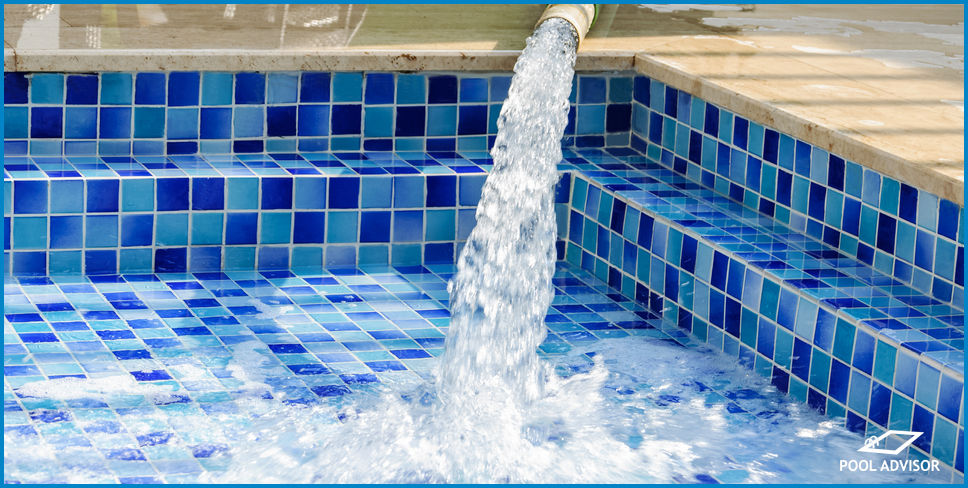
Pool Start Up Chemicals - What Do I Need?
When you are opening a new pool for the first time, it can be overwhelming. There are many different chemicals needed for pool start up, and it can be difficult to know which ones you really need to buy.
In this article we will give you tips for before you purchase chemicals and let you know exactly what pool start up chemicals you will need for your pool. We also include information about other recommended chemicals that you may need.
Before Purchasing Chemicals
Before purchasing pool start up chemicals we recommend that you purchase a chemistry test kit, such as a 4-in-1 Test Kit. While all pools will require certain chemicals upon startup, not all pools will require the same pH balancing treatments.
The chemicals that you will need to adjust the pH and total alkalinity of your pool are dependent on the water that you use to fill your pool. Some source water is naturally high in pH and alkalinity, while other water sources are slightly too acidic for pools.
When purchasing a test kit, we recommend getting one that at least tests for free chlorine, pH, and total alkalinity, but there are many other important factors to your pool’s chemistry. More thorough kits include tests for cyanuric acid, combined chlorine, and calcium hardness.
Chemicals For Opening The Pool
Alkalinity and pH Adjusters
If you just need to raise the total alkalinity of your pool, we recommend that you use sodium bicarbonate (aka baking soda). This product effectively raises total alkalinity and also produces a slight increase in pH levels.
If you need to raise both pH and alkalinity substantially, look for a product called soda ash.
In cases where you need to lower the total alkalinity and pH of your pool’s water, you will need to use either sodium bisulphate or hydrochloric acid.
If you are new to handling chemicals or are otherwise hesitant to keep hydrochloric acid in your home, sodium bisulphate, also known as dry acid, makes a much safer option in terms of handling and storage.
Use an alkalinity calculator to find out how much to add for each of these products.
Chlorine
Chlorine is essential for maintaining a sanitary environment in your pool. It acts to oxidise algae and bacteria in your pool, killing them and preventing them from growing.
It can also oxidise other organic compounds, such as those in sweat, urine and sunscreen.
Add chlorine as soon as possible when filling your pool, especially if you think filling will take many days. Algae can start growing in a pool with no free chlorine in a matter of hours, so make sure you have it on hand when filling the pool
An unstabilised form of chlorine, such as calcium hypochlorite or liquid chlorine is recommended. This makes it easier to maintain cyanuric acid levels independently of chlorine levels (more on this below).
Clarifiers
Clarifiers are not always required for opening a pool, but they are recommended. These products work to remove tiny particles of debris from your water that are otherwise too small for your filter to catch.
If your pool water is noticeably cloudy after you fill it and balance the pH, we recommend you use a full-strength clarifier. This product will quickly work with your filter to make your water sparkling clear as you prepare it for swimmers.
If you have no issues with water quality upon opening your pool, full strength clarifiers are usually unnecessary. In this case, we recommend that you look into preventative clarifier options, such as the Sparkle tablets by Zodiac.
These tablets can be placed into your pool’s skimmer basket and slowly work to remove water-clouding contaminants as they build up over time.
Chemicals For Maintaining The Pool
Stabiliser
While chlorine is essential for maintaining a sanitary environment in your pool, it won’t last long unless it’s accompanied by stabiliser, also known as cyanuric acid.
Cyanuric acid binds with a fraction of the chlorine in your water, converting it to a form where it cannot be degraded from sunlight. This is important because chlorine without stabiliser can be degraded by UV light in a matter of hours.
Add stabiliser to your pool to maintain a concentration of 30 - 50 ppm.
Algaecide
Algaecide is most effective when used as a preventative agent. We recommend that you use an initial dose of an algaecide when opening your pool because this simple step can prevent many algae infestations from spreading in the first place and can fight off algae for up to three months before a new dose is needed.
Use an algaecide calculator to work out how much algaecide to add to your pool.

Louis
A chemical engineer by trade, Louis is committed to debunking myths in the pool industry by explaining the underlying chemistry and making it accessible to all.
